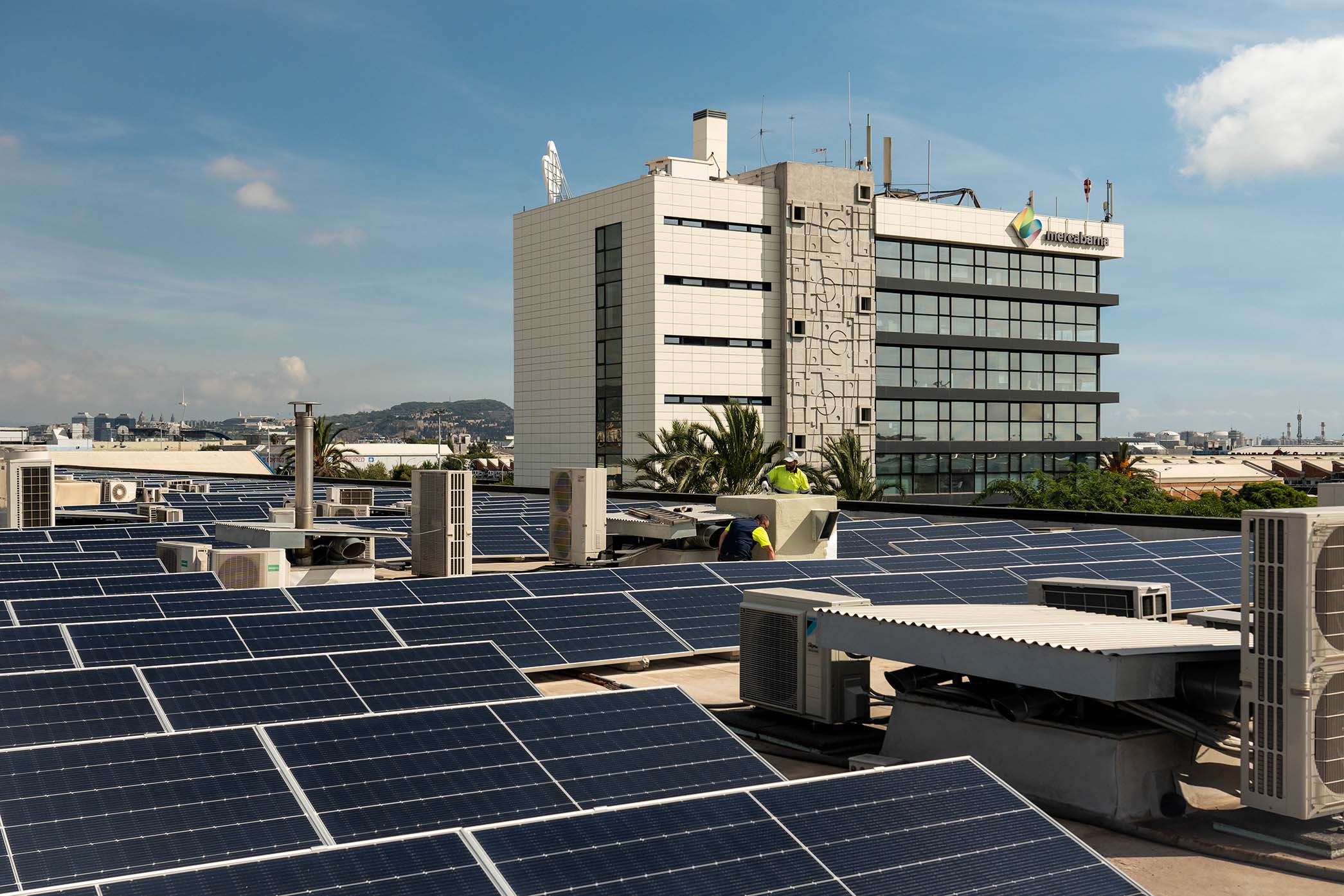Sustainability is fully integrated into Mercabarna’s strategy and management
Mercabarna will become the largest self-consumption rooftop photovoltaic system on the peninsula. /MERCABARNA
Oscar Ortega. Barcelona. Editorial board.
Mercabarna, a food reference point in central and southern Europe, develops various actions focused on the sustainability of the food unit. Initiatives that reach the areas of food, such as setting up a center for food use, installing photovoltaic panels or campaigns to promote sustainable food.
Sustainability is fully integrated into Mercabarna’s strategy and management. It is easy to reach this conclusion if we look at the various sustainability actions and initiatives, some pioneering at the time, developed by Mercabarna in recent years. In the words of its general manager, Jordi Valls, “we are working in all areas of food —production, distribution, consumption, consumer education, zero waste…— to put our grain of sand on the road to a more sustainable society ”.
“Foodback will allow us to recover twice as many unmarketable fruit and vegetables”
Catering
Among the main projects of this food unit, for example, Foodback stands out, a center for food use launched this year, which goes beyond the walls of a simple installation. Valls describes that “Foodback will enable us to recover twice as many fruit and vegetables that are unmarketable but fit for human consumption as today. In four years we will go from 1,500 tons recovered per year to 3,000, which will be distributed mainly among the vulnerable people of Barcelona and its metropolitan area”. The managing director adds that “to carry out this project we have obtained the collaboration of institutions, bodies and all the companies of Mercabarna, for which Foodback facilitates compliance with the legislation against food waste”.
photovoltaic energy
Mercabarna also launched the photovoltaic energy project this year, perhaps the most emblematic, which in two years will transform the food unit into the largest photovoltaic system for self-consumption on the roofs (rooftops) of the Iberian Peninsula, thanks to an agreement between Mercabarna and wholesale associations located in the food estate.
The general manager of Mercabarna explains that “this plant, which will cover 25% of the energy needs of the food department, will involve a public-private investment of 12 million euros, will occupy an area of 360,000 m22, will have an installed capacity of 18 MWp and will save 6,000 t of CO2 per year in the atmosphere”. Currently, 5 megawatts of photovoltaic power are already installed in Mercabarna on approximately 31,000 m22 of roofs for buildings in Mercabarna (Mercabarna-flor, Biomarket, Zona Commerciale) and approximately 75,000 m2 in private companies in the food sector.
Green dot
At the beginning of 2023, Mercabarna will complete the modernization works of its Green Point, at the time a pioneer among food estates, to further improve -Mercabarna currently recycles 75% of waste- the circularity of the waste generated by the companies located in Mercabarna.
sustainable food
On the subject of ‘sustainable food’, Jordi Valls advances that “in the first half of 2023 we will launch a campaign to promote sustainable food, which will give greater visibility to local products and those that are more environmentally friendly”.
Mobility and routes
The director general comments that “mobility in Mercabarna and the routes of the vehicles that leave the food unit to carry out the distribution of food are also being studied. This project, which we are carrying out together with the City of Barcelona and other bodies such as Eurecat, aims to improve commercial traffic and downloads in Mercabarna, as well as in Barcelona and its metropolitan area”.
social sustainability
As regards social sustainability, the already traditional school programs “5 a day”, referring to fruit and vegetables, and “Grow with fish”, which promote healthy and sustainable eating among 12,000 students in Catalonia each year, stand out.
Following this line of work, Jordi Valls recalls that “last year we promoted the headquarters of the Barcelona Food Institute in Mercabarna, creating job opportunities for young people who are training in the food sector”.
Access the news here.
Access the dossier on sustainable production here.
Access the latest issue of Valencia Fruits here.


:quality(70)/cloudfront-us-east-1.images.arcpublishing.com/elfinanciero/WVSP56REVBGXNIQD4UQSFEQMFQ.jpg)
